What do an old mattress, a box of punctured inner bike tubes and a broken tent all have in common?
The answer is that all three were destined for landfill, until Lucia Gasparidesova came along.
The 33-year-old can see value where others do not, and uses items bound for the bin to create handmade backpacks, totes and bumbags.
How does Prolong work?
Lucia uses everything from parachuting cloth and wetsuits to reflective safety vests to produce handmade, and usually one-of-a-kind bags.
“People have got to know what I do and I get all sorts of things donated to me now,” she said.
“An old flatmate of mine was changing the inner tubes of his bike and asked if I thought I could use the old rubber tube.
“I said yes, and the next thing I knew I had a whole box of tubes donated from the Edinburgh Bicycle Co-operative on George Street.”
It took her a while to work out what to do with them. Eventually she discovered that by carefully layering them onto a bag, it would make the outer shell waterproof as well as giving it a funky fringed look.
“I like when you get a hint of what the product was before,” she said.
Lucia also trawls through charity shop bargain bins to rescue unloved fabrics to turn into her next creation.
While working part-time as a secretary, Lucia dedicates as many hours as she can to her small business, which she has named Prolong.
Based on the top floor of Deemouth Artist Studios in Torry, she shares a community space where 30 artists and makers of all kinds can produce their work.
“I love it there, plus I get all the scraps from the other artists which is useful,” she laughs.
No such thing as sustainable fashion
Ever since she could remember, Lucia had dreamed about working in fashion.
She had always loved clothes and accessories and spent four years studying fashion design at home in Slovakia.
“But then I watched a documentary called The True Cost, and I was just a mess,” she said.
“It changed everything for me.”
Over the course of an hour and a half, The True Cost lays out in grim detail the waste, pollution and human rights abuses perpetuated by the fashion industry.
Lucia was floored. How was it that none of this had been acknowledged during her studies at college?
“I started researching more and more about the industry and it felt like the best thing to do was just give up and not continue with fashion at all,” she said.
It was devastating, but the more she learned the more Lucia grew disgusted by the fast-fashion model of churning out cheap clothes for big profits.
Particularly as the fashion industry is widely believed to be the second most polluting industry in the world, right behind the oil industry.
So, living and working in Aberdeen, Lucia tried to forget about fashion and her passion for design.
She was just about managing when she met a friend who invited her to a fashion week event in Edinburgh.
“It was all centred around making fashion sustainable and it just totally opened my eyes,” Lucia said.
What she saw sent her mind into overdrive, maybe there was a way she could still pursue her dream?
What to do with 30 pairs of jeans
Feeling inspired, Lucia decided that if she was ever going to make a go of working in fashion, she just had to go for it.
“I had to stop just waiting for something to happen or for the industry to suddenly become sustainable,” she said.
“I had a thought that if I used garments which were already made and in fact being thrown out, then I wasn’t contributing to the environmental damage fashion usually generates.”
Producing garments is incredibly resource-intensive. For example, it takes around 7,500 litres of water to make a single pair of jeans, equivalent to the amount of water the average person drinks over a period of seven years.
As for carbon emissions, the industry is responsible for more than all international flights and maritime shipping combined.
But by upcycling old clothes, Lucia could avoid contributing to this – and was helping to save some of the 336,000 tonnes of clothing Britons send to landfill each year in the process.
It all started with jeans, when Lucia mentioned to her boss at the time she was looking for old clothes to repurpose into something new.
“The next day she came in with 30 pairs of jeans for me – 30! – and then I bought a sewing machine from a charity shop and got started.”
At first, she had no idea what to make.
“I started with clothing but it was very complex and you have to do each piece in a range of different sizes and so on, which is a lot of work.
“I found there was a lot more freedom with bags – plus they are not seasonal so can be used all year round.”
Lucia had found her niche, and in 2017 Prolong was born.
She’s come a long way from the 30 pairs of jeans she started with and now sells Prolong products both online and at local markets. One day hopes to make it her full-time career.
Sustainable fashion isn’t just a business for her, or a passion, Lucia believes that this is the only way that fashion will survive in the future.
Lucia is April’s entry to the P&J’s Eco Hero competition.
For more information, and to enter, click here.
Deemouth Artist Studios are holding an open day with studio tours on May 8 and 9.
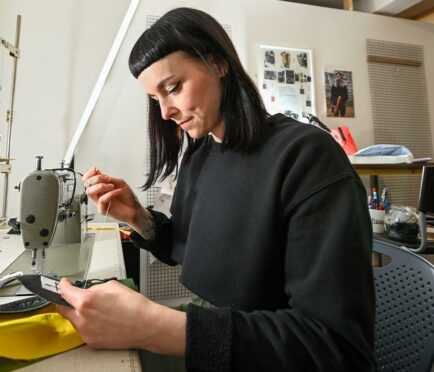
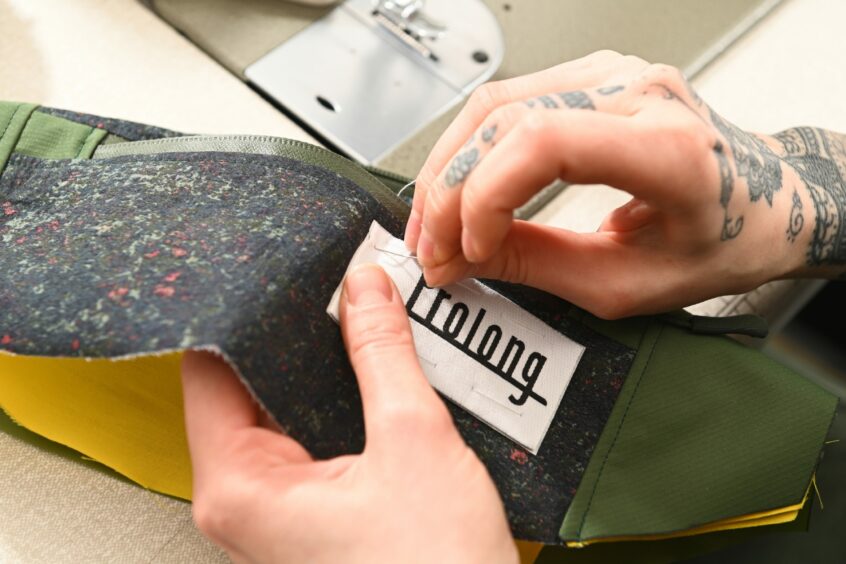
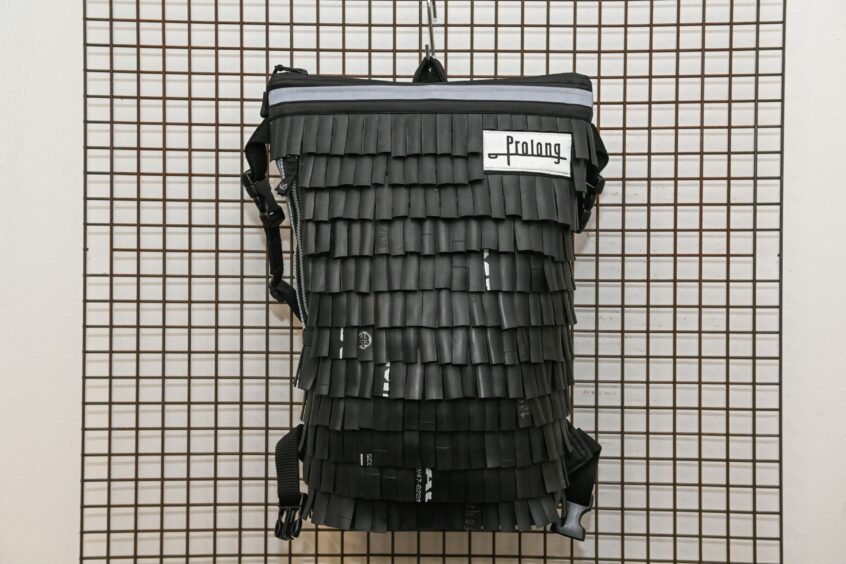
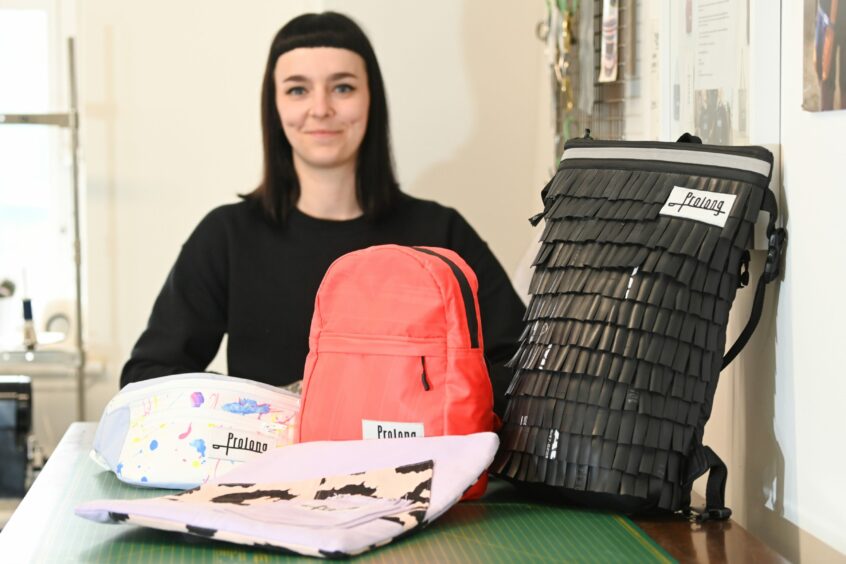
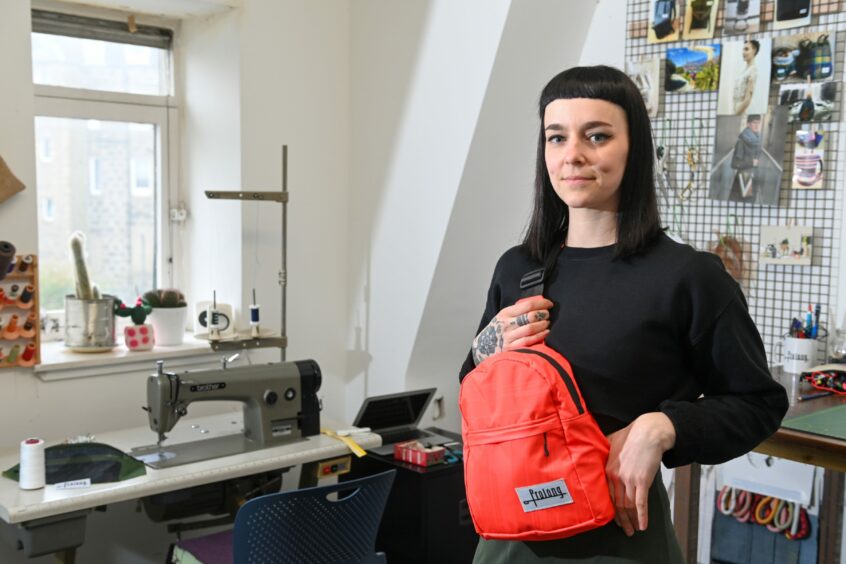
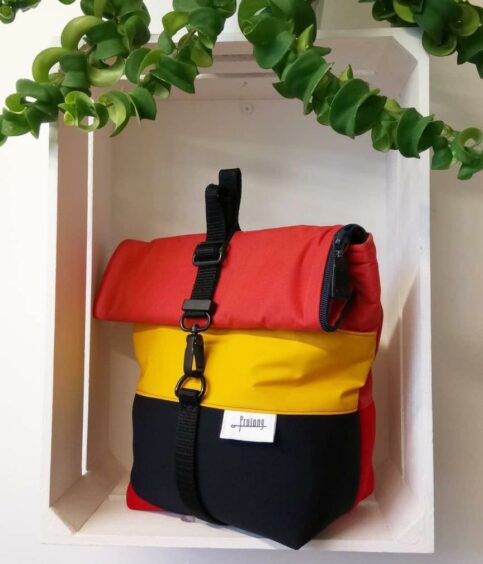
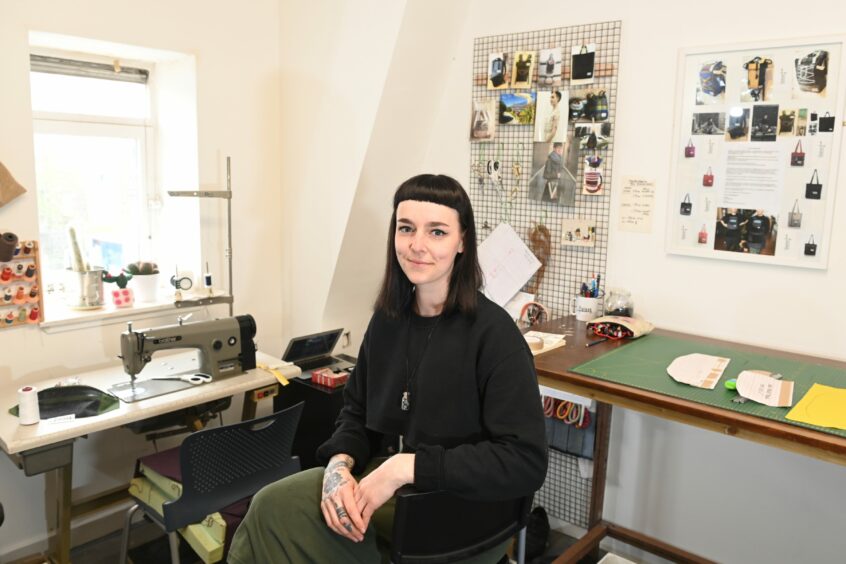
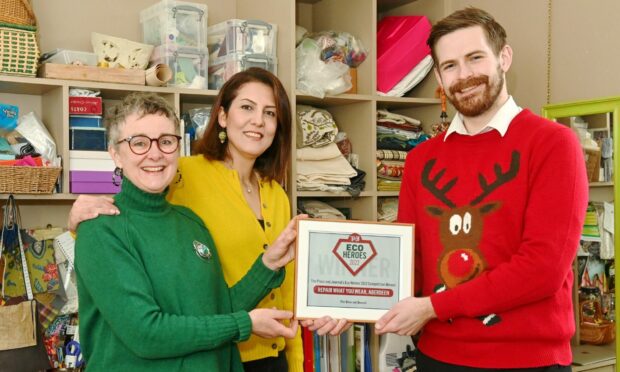
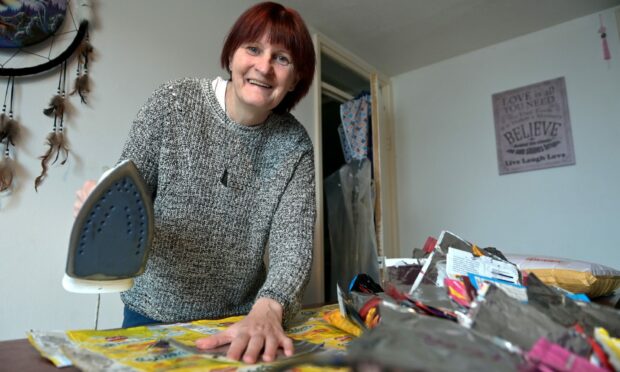
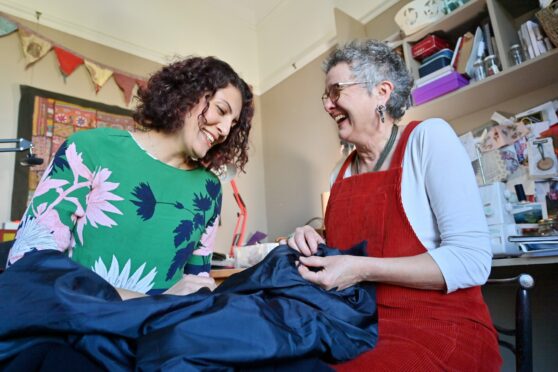
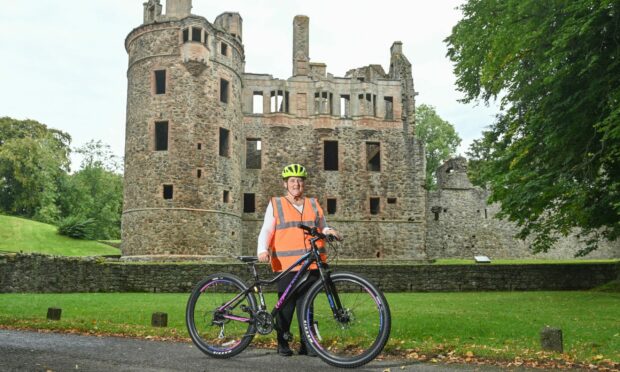
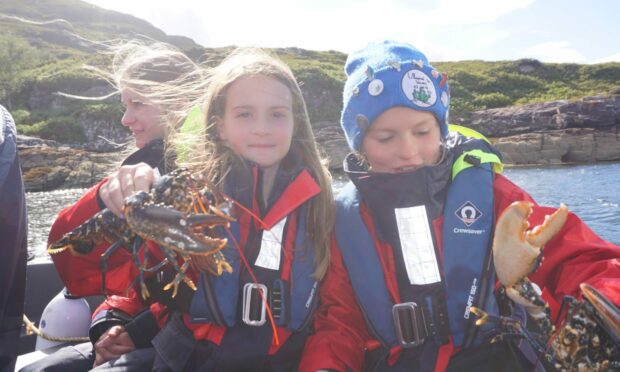
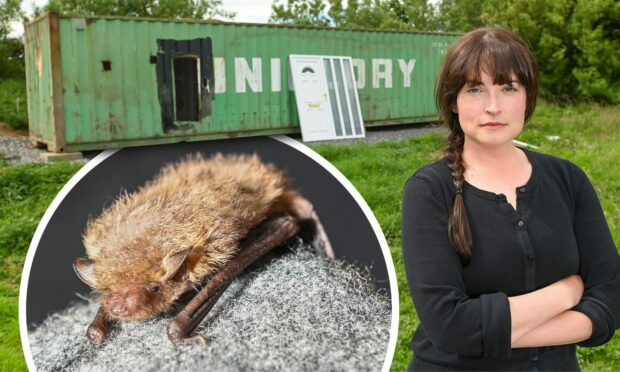
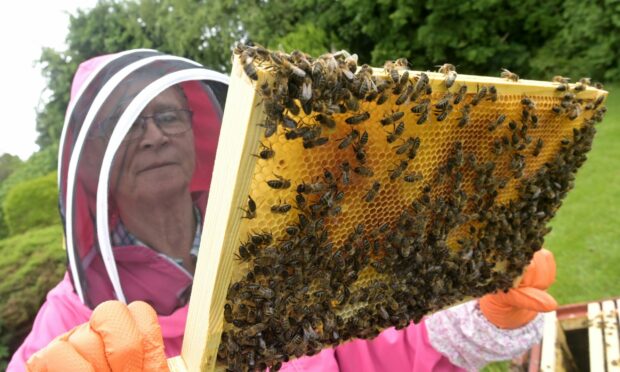
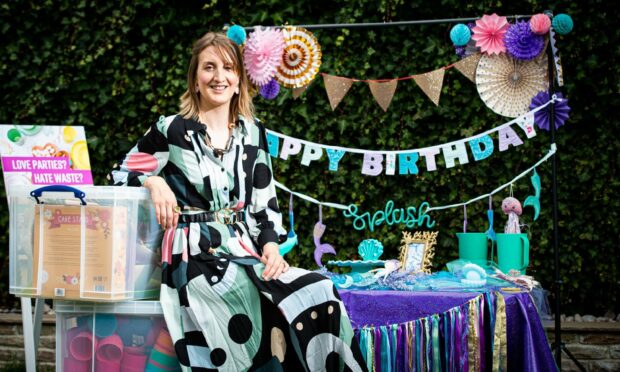


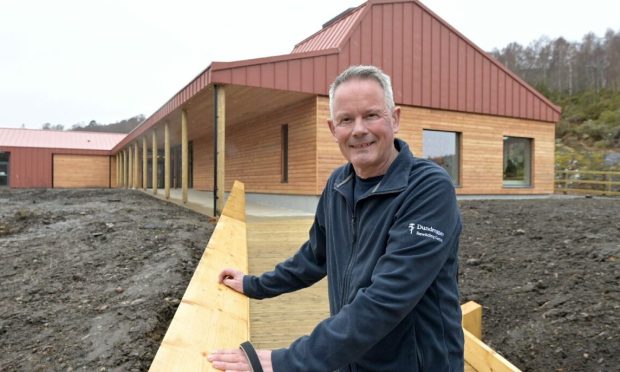
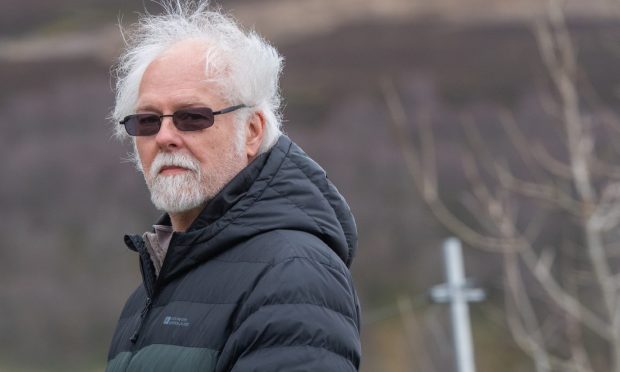
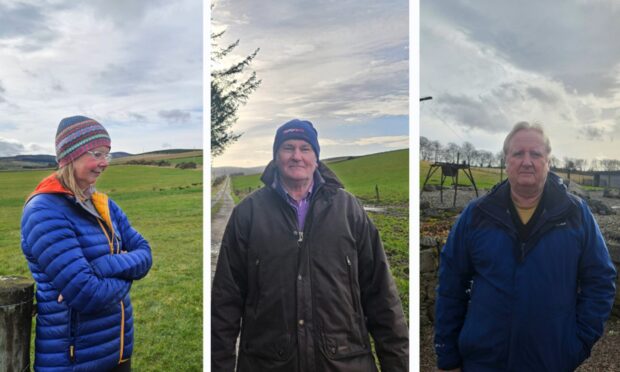

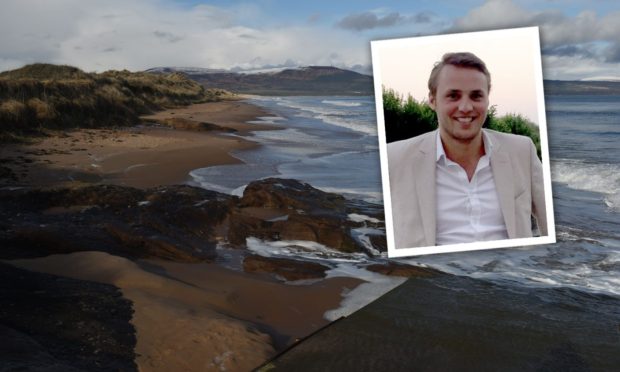
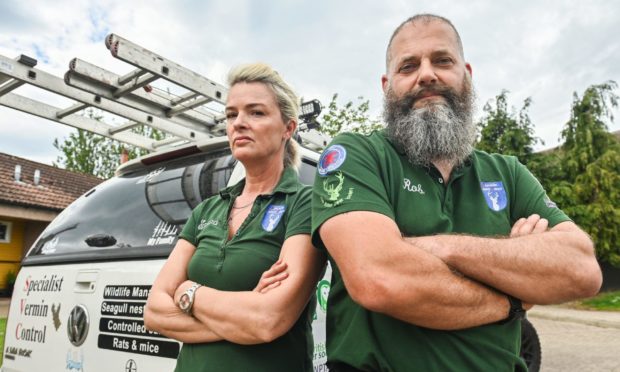
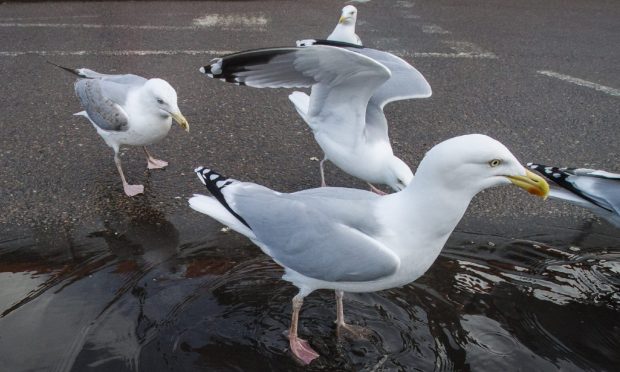
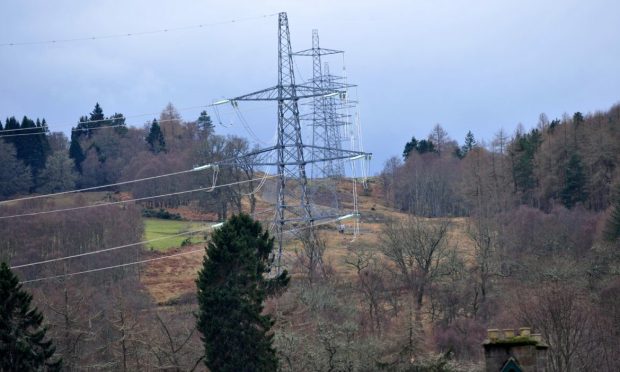
Conversation